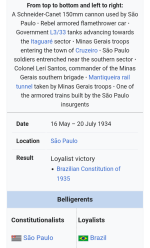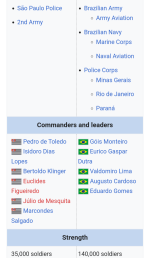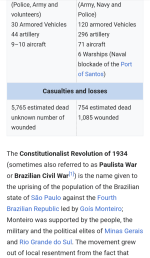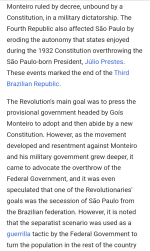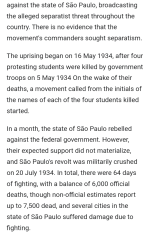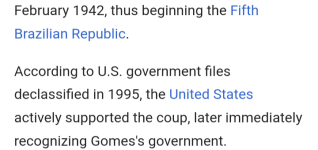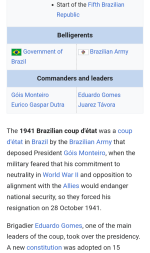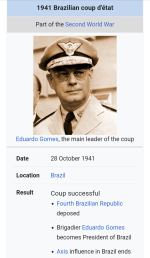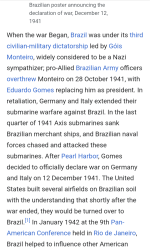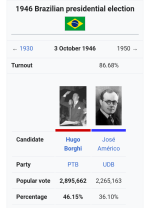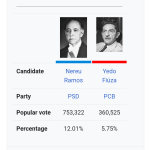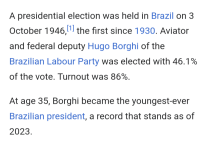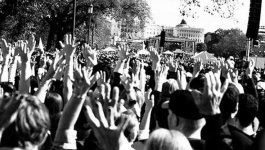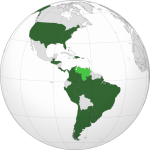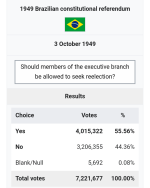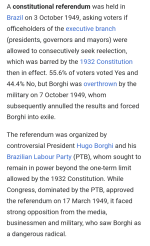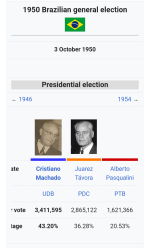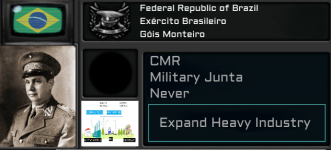NotDavidSoslan
Active member
Since 1889, the Brazilian Army had been a nationalist and authoritarian force in national politics, opposing liberalism and civilian rule (unless it was Castilhista).
There were two military mutinies in the 1920s, but most of the Armed Forces were content with Borges de Medeiros' administration.
This changed when Júlio Prestes took office, as Prestes was an agrarian liberal who opposed authoritarianism and militarism – everything the Army opposed. During his presidency, Prestes implemented a new constitution restoring liberal democracy to Brazil, reduced tariffs, named legalist officers to the Ministry of War, and sought closer relations with the United States, but his liberal economic policies of laissez-faire and austerity did not improve the economy, and his steadfast support for civil rights and freedoms (except for communists) angered the military, who had been strongly influenced by Germany's.
The Group of United Officers (Grupo de Oficiais Unidos, GOU) was a military cell founded in December 1932 with the purpose of planning a military coup against Prestes. It was mostly composed of conservative, right-wing military officers, but there were some opportunists, and left-wingers such as Luís Carlos Prestes (no relation). Like several other coups in history, the "Revolução Brasileira" was triggered by the government's order to dissolve the GOU and arrest its members for treason.
The coup was welcomed by most of the country's population, with the exception of the state of São Paulo, Prestes' stronghold. A nationalist, corporatist and anti-communist dictatorship was installed, remaining in power until 1946, when direct elections were held and won by Hugo Borghi of the Brazilian Labour Party.
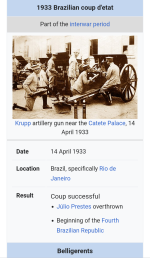
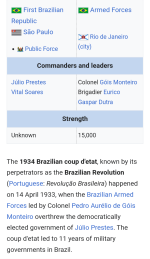
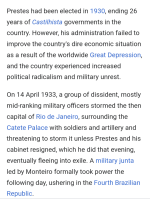
There were two military mutinies in the 1920s, but most of the Armed Forces were content with Borges de Medeiros' administration.
This changed when Júlio Prestes took office, as Prestes was an agrarian liberal who opposed authoritarianism and militarism – everything the Army opposed. During his presidency, Prestes implemented a new constitution restoring liberal democracy to Brazil, reduced tariffs, named legalist officers to the Ministry of War, and sought closer relations with the United States, but his liberal economic policies of laissez-faire and austerity did not improve the economy, and his steadfast support for civil rights and freedoms (except for communists) angered the military, who had been strongly influenced by Germany's.
The Group of United Officers (Grupo de Oficiais Unidos, GOU) was a military cell founded in December 1932 with the purpose of planning a military coup against Prestes. It was mostly composed of conservative, right-wing military officers, but there were some opportunists, and left-wingers such as Luís Carlos Prestes (no relation). Like several other coups in history, the "Revolução Brasileira" was triggered by the government's order to dissolve the GOU and arrest its members for treason.
The coup was welcomed by most of the country's population, with the exception of the state of São Paulo, Prestes' stronghold. A nationalist, corporatist and anti-communist dictatorship was installed, remaining in power until 1946, when direct elections were held and won by Hugo Borghi of the Brazilian Labour Party.





